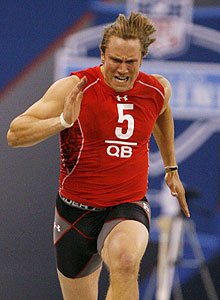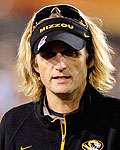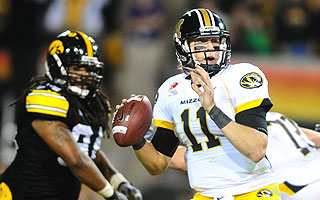Deadlift
Hall of Famer
After watching the program, I believe in Jake Locker a little more. What a run Washington went on, capped off by their Bowl win.
Man, Scam is so full of hisself!
Man, Scam is so full of hisself!



Don Wassall said:Here's another article that gently broaches the subject of racial stereotypes in a way that isn't nearly as rare as it used to be. Credit to CF? Why not! But I'd say this kid has about as much chance to be drafted as record-setting WR David Ball had a few years ago.
Truthteller said:Don Wassall said:Here's another article that gently broaches the subject of racial stereotypes in a way that isn't nearly as rare as it used to be. Credit to CF? Why not! But I'd say this kid has about as much chance to be drafted as record-setting WR David Ball had a few years ago.
Kind of sounds like the Ethan Kilmer story and he was drafted in round 7, so perhaps Hogan has a chance? I don't really follow college ball as much as others, but I do follow these guys once they become NFL prospects and the draft rolls around. I believe Kilmer was noted as a great special teams player at Penn State, which no doubt helped him. Not sure Hogan even played special teams at his FCS school.
But the stories are very similar: Unbelievable athletes thatwere skewed to'other sports' out of high school, no doubt due to the caste system. Both athletes eventually got the 'itch' to play football after a few years and were great talents, who rarely stood out in football because they took up the sport as juniors or seniors and were not allowed to play much. Bothwere/areworkout freaks.
Giants drafted a tailback in 1999 (Sean Bennett), who was sort of like this too...his career got off to great start. He started over current neo-con puppetTiki Barber as a rookie, but was injured early when ESPN jack@ss Ted Bruschi cheap shoted him on the knee. He's eventually missed 2 seasons due to that hit and was done.
Truthteller said:<div>Giants drafted a tailback in 1999 (Sean Bennett), who was sort of like this too...his career got off to great start. He started over current neo-con puppet Tiki Barber as a rookie, but was injured early when ESPN jack@ss Ted Bruschi cheap shoted him on the knee. He's eventually missed 2 seasons due to that hit and was done.</div>
<div> </div>

snow said:actually its usually the other way around, black tackles and white guards/centers. Mike Pouncey is rated the top c/g and all of a sudden hes going to be a top pick even though a guard/center hasn't gone as high as he is projected in years. It must be that magical skin. Hes not even as talented as his twin who was average as a starter in Pittsburgh but made a couple of nice moves to the second level on a few plays and was voted in the top. Doug Legursky came in with no drop off in play but nobody mentions this.


ToughJ.Riggins said:Jimmy Chitwood, who was the D III WR who was more productive than Cecil Shorts III and had a great Pro Day, but gets no love? He seems to be a guy who would get a real look if black. I believe I saw the Bears invited him for some kind of tryout already, but I forgot his name already. I really hope he isn't foolish enough to go hang with Hatie! Chicago has destroyed more white skill players' careers than any other team!
"I don't think I could have made it in the NBA," Cameron said. "I am a slow, white guy. They don't work out in the NBA. You have to be a freak athlete to survive. I am definitely more suited for the NFL."
Jimmy Chitwood said:"when you consider the 6-5, 254-pound Cameron was the second-fastest tight end at the Combine (and would likely be faster and stronger than all but a handful of NBA players".

